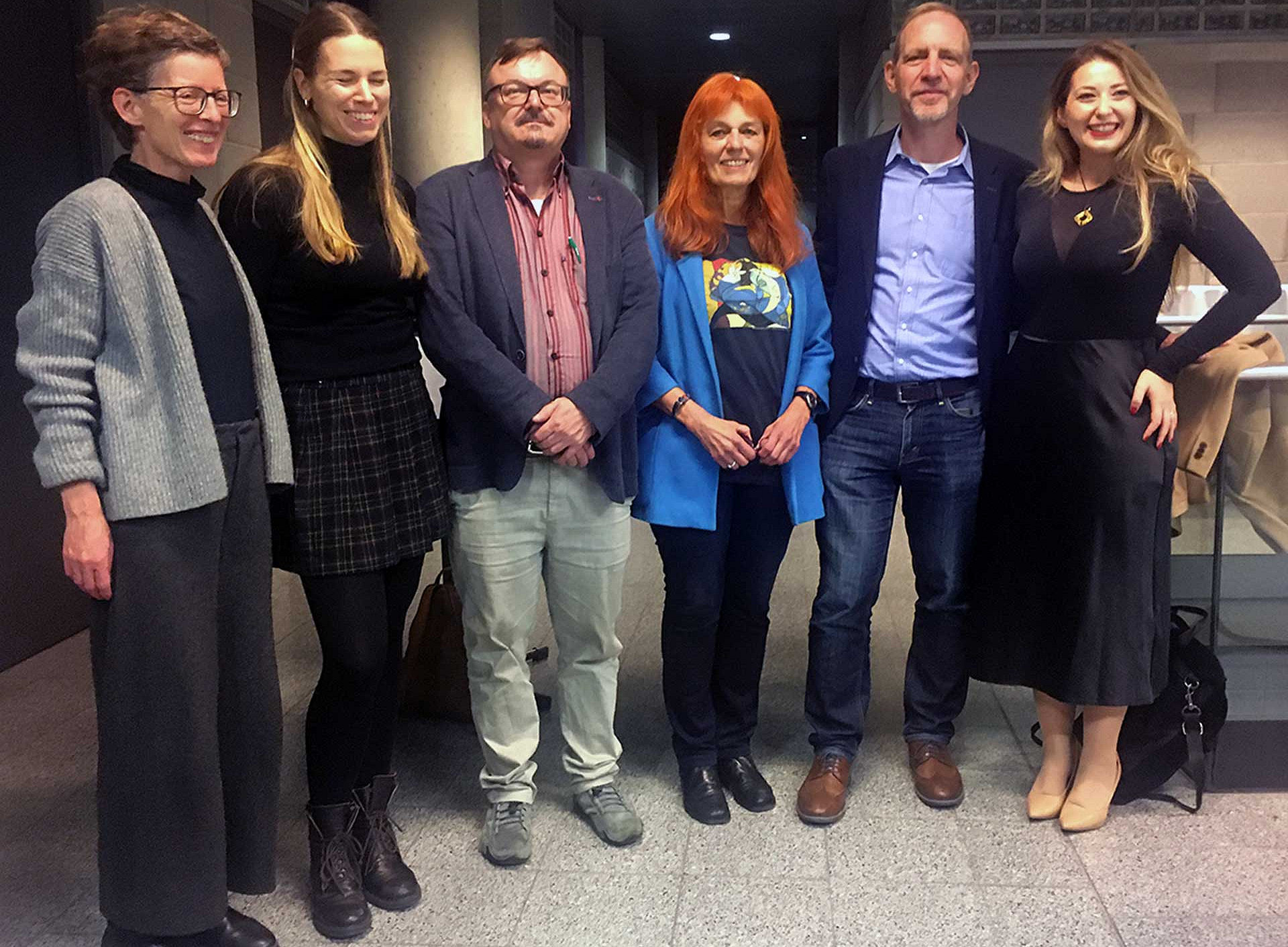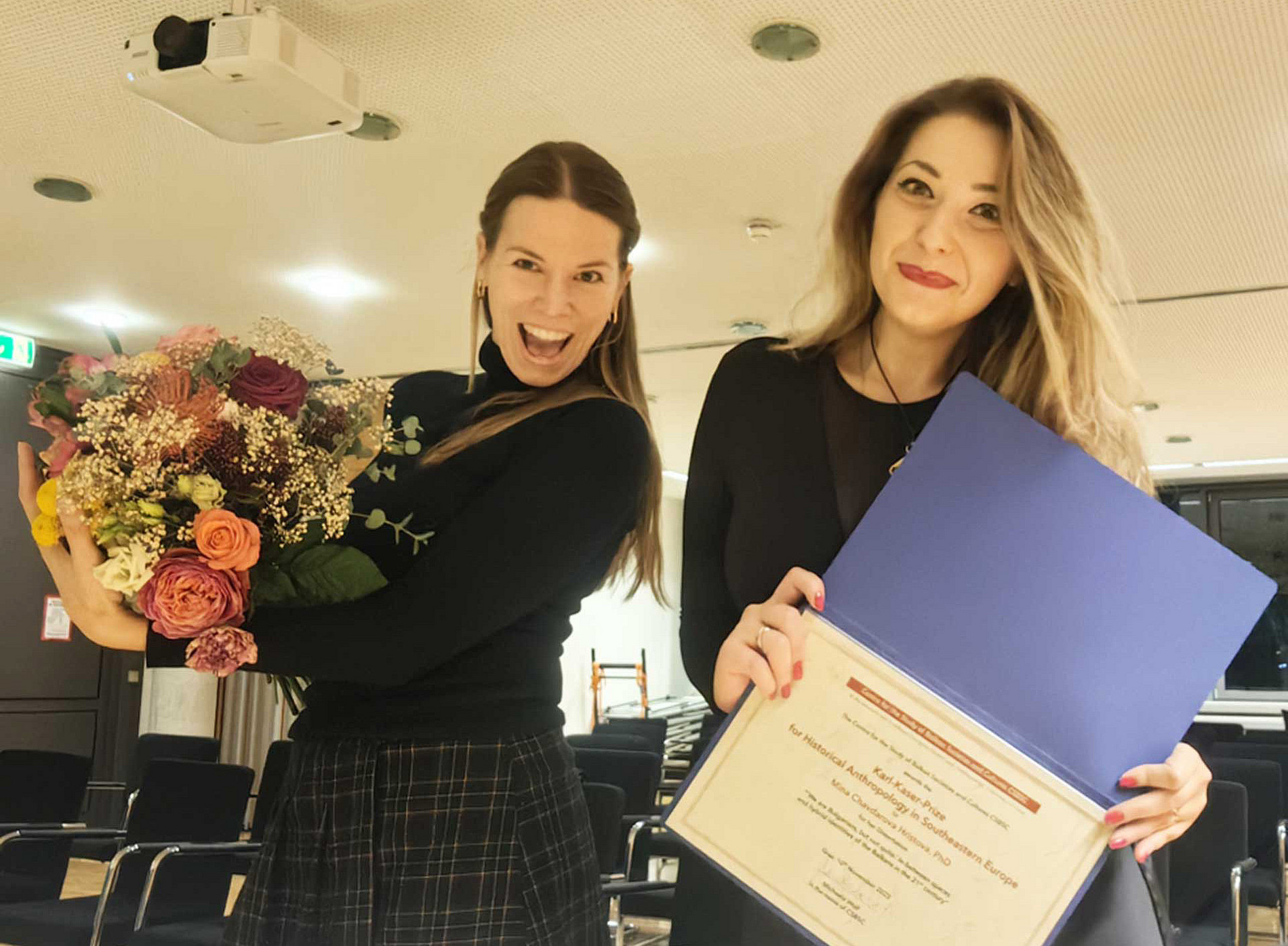Am 10. November 2023 wurde zu Ehren des Historikers ein internationaler Round Table zum Thema “New perspectives on the nexus of the history of population and medicine in Southeast Europe” abgehalten. Im Anschluss daran wurde der Karl-Kaser-Preis für Historisch-Anthropologische Südosteuropaforschung – dotiert mit 3000 Euro – zum ersten Mal an der Universität Graz verliehen.
Aus den internationalen Bewerbungen wählte eine Jury, zusammengesetzt aus Florian Bieber (Leiter des Zentrums für Südosteuropastudien), Robert Pichler (Institut für die Erforschung der Habsburgermonarchie und des Balkanraums, Österreichische Akademie der Wissenschaften), Christian Promitzer (Fachbereich Südosteuropäische Geschichte und Anthropologie) sowie Michaela Wolf (Institut für Translationswissenschaft) aus einer großen Anzahl an Einreichungen zwei Preisträgerinnen aus:
Mina Chavdarova Hristova, PhD, Institut für Ethnologie und Folkorestudien an der Bulgarischen Akademie der Wissenschaften, für ihre Dissertation „‘We are Bulgarians, but not quite.‘ In-between spaces and hybrid identities of Balkans in the 21st century“
Daša Ličen, PhD, Institut für Ethnologie am Forschungszentrum der Slowenischen Akademie der Wissenschaften und Künste, für ihre Dissertation „Cultural associations in Trieste as the setting of the identification processes of the Triestine population (1848–1914)”.

